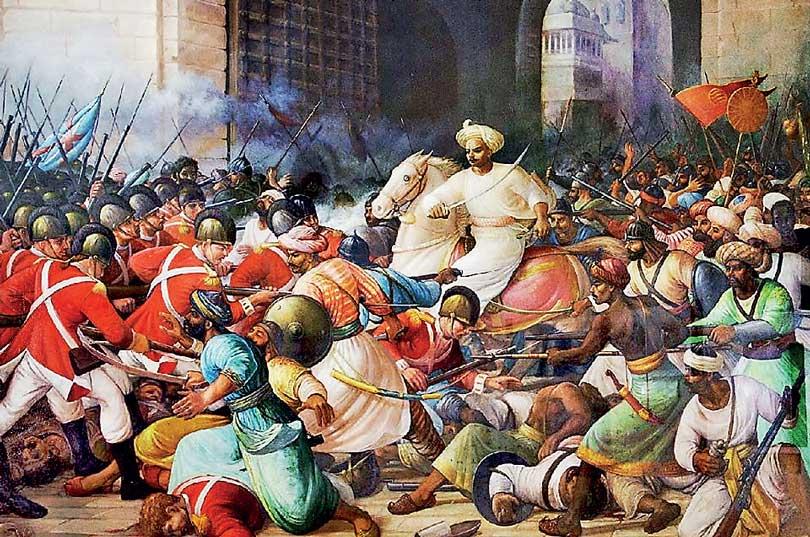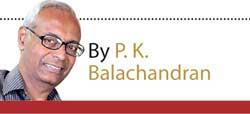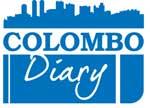Reply To:
Name - Reply Comment
Last Updated : 2024-04-25 18:20:00

 The on-going move by the Hindutwa regimes at the Centre and States in India to obliterate the legacies of the Muslim era in Indian history, is now threatening Tippu Sultan (1750-1799), the iconic 18th Century Muslim ruler of Mysore in South India.
The on-going move by the Hindutwa regimes at the Centre and States in India to obliterate the legacies of the Muslim era in Indian history, is now threatening Tippu Sultan (1750-1799), the iconic 18th Century Muslim ruler of Mysore in South India.
Tippu has for long been celebrated by India’s secular freedom fighters for the distinction of having been the only Indian monarch to have died fighting the British in a military engagement. He was killed in hand to hand combat at the gate of his fort in Srirangapatnam on May 4, 1799. Tippu was also recognized as the father of Indian rocketry. He used rockets in his fighting forces even before the European powers thought of rockets. The British shipped 700 of his rockets to England to find out how they could be replicated.
However, the Bharatiya Janata Party (BJP) government in Karnataka last month initiated steps to take off all references to Tippu Sultan in school text books. As per the historiography of Hindutwa, variants of which are now being spread in universities and other academic bodies, Tippu was an Islamic fanatic who persecuted the Hindus and forcibly converted large numbers to Islam in Mangalore, Kerala and Coorg.
 Last month, the BJP government in Karnataka announced that Tippu is now being taken off school text books. Chief Minister B.S. Yediyurappa said: “Lessons on Tippu Sultan must not be in school textbooks, we will not allow them to continue. We are going to remove everything about him. Whatever we have written about him in books, we are also thinking about removing.” Earlier, the BJP government in the State, had stopped the practice of previous Congress governments of celebrating November 10, Tippu’s birthday, “Tippu Sultan Jayanti.”
Last month, the BJP government in Karnataka announced that Tippu is now being taken off school text books. Chief Minister B.S. Yediyurappa said: “Lessons on Tippu Sultan must not be in school textbooks, we will not allow them to continue. We are going to remove everything about him. Whatever we have written about him in books, we are also thinking about removing.” Earlier, the BJP government in the State, had stopped the practice of previous Congress governments of celebrating November 10, Tippu’s birthday, “Tippu Sultan Jayanti.”
But was Tippu Sultan, an Islamic fanatic? No, says his biographer Prof. Mohibbul Hasan, with documentary evidence. Hasan, who has taught history in the universities of Calcutta (present Kolkota), Aligarh and Jamia Millia in Delhi, argues that the “Tiger of Mysore” was essentially non-communal, and was basically development oriented. He says that Tippu ought to be appreciated for turning his vast domain into the most prosperous India princely state in the 18th Century.
The British imperialists, however, had painted Tippu in the most lurid colors because he was stopping their advance in India. W. Kirkpatrick, in his “Select Letters of Tippoo Sultan” (1811), describes him as an “intolerant bigot and a furious fanatic” who indulged in forcible conversions, mass circumcisions, destruction of temples and confiscation of temple lands. M.Wilks, writing in 1864, and H. H. Dodwell in his “Cambridge History of India (1929)” echoed Kirkpatrick.
But Prof. Hasan maintains quoting chapter and verse from documents that Tippu was dubbed a religious bigotry by the British because he refused to pay tribute to them; tried to set the Nizam of Hyderabad and the Marathas against them; and sought an alliance with the French. Hasan points out that even the hostile British acknowledged that Tippu gave a good development-orientated administration to his people.
Far from appropriating temple lands out of Islamic zeal, Tippu had donated lands to Hindu temples and monasteries
Tippu put Hindus in High Places
Hasan points out that a number of top functionaries in Tippu’s government were Hindus. Purnaiya was the MirAsaf (in charge of Revenue and Finance). Krishna Rao was his Treasurer. Shamaiya Iyengar was Minister of Police and Posts. Subba Rao was his chief Peshkar (Chief Accountant). Srinivas Rao and Appaji Ram were his close confidantes.
His agents in the Moghul court were Mool Chand and Sujan Rai. The Faujdar of Coorg was Nagappayya, a Brahmin. The Asafs (revenue officers) at Coimbatore in Tamil Nadu and Palghat in Kerala were Brahmins. The chief of Tippu’s irregular cavalry was Hari Singh. Rama Rao and Sivaji, a Maratha, commanded his regular cavalry. Tippu sent one of his Hindu Generals, Sripat Rao, to quell the Nair rebellion in Malabar.
Helped Sringeri Sankara Monastry
In 1916, the Mysore government’s Director of Archeology, K.Narasimhachar, discovered a bunch of letters in the Sringeri Sankaramonastry, which showed that Tipu had greatly helped it and highly respected its Abbot, the Sringeri Sankaracharya.
In 1791, the monastery was raided and pillaged by a Maratha chieftain, Raghunath Rao Patwardan, and the Sankaracharya had asked Tippu for help to restore it. Tippu wrote back saying: “People who have sinned against such a holy place are sure to suffer the consequences of their misdeeds at no distant date.” He asked his officials to send cash and grains so that the idol of Goddess Sarada could be consecrated. He also donated a palanquin for the Sankaracharya and requested him to pray for the prosperity of his domain.
Tippu had contributed to the Lakshmikanta temple at Kalale in Nanjangud taluk; the Narayanaswami temple at Melkote; the Srikantheswara temple at Nanjangud; and the Ranganathaswami temple at Srirangapatnam.The greenish linga (symbol of Siva) at the Nanjandeswara temple is known as “Padshalinga” because it was donated by Tippu the Padhash or ruler. According to a Sanad (royal proclamation)d, Tippu “ordered” the continuation of worship at the Tirupathi Venkatachalapathi temple.
Biographer Hasan wonders if Tippu would have allowed the Ranganatha, Narasimha and Gangadhareswara temples to be in the Srirangapatnam fort (his fort) if he was an Islamic bigot. If he was a fanatic Muslim, he would not have believed in astrology and consulted astrologers daily, first thing in the morning.
Far from appropriating temple lands out of Islamic zeal, Tippu had donated lands to Hindu temples and monasteries. If Tippu appropriated lands it was only to end unauthorized occupation, Hasan says.
Forcible Conversions
However, Tippu did order forcible conversion of the Nairs of Malabar and the Hindus of Coorg. It is noteworthy that such conversions did not take place anywhere else in his realm. Tippu told his French General, Cossigny, that he ordered the forcible conversion of Nairs and Coorgis because these communities had staged rebellions repeatedly.
It was reported that 70,000 were converted in Coorg, but this could not be true because the total population of Coorg was not that much, Hasan points out. Punganuri Ramachandra Rao says in his Memoirs of Hyder and Tippoo (1849) that only 500 were converted in Coorg. Prof. Hasan admits that Catholics in Kanara were converted forcibly, but this was because they had helped the British defeat Tippu at Mangalore.Tippu never tried to convert loyal subjects, he asserts.
Innovative Administrator
Tippu gave Mysore a progressive administration. J.Mill in his “History of British India” (1848), acknowledged that as a ruler, Tippu sustained an “advantageous comparison with the greatest princes of the East.” Tippu’s country was “the best cultivated and the most flourishing in India,” he adds.
Tippu rationalized the administrative system; got rid of private middlemen; encouraged local industries and sought French industrial technology; sent trade delegations to Afghanistan, Iran, Turkey and Myanmar; built the first road network in Malabar; and tried to send one of his sons to France for a modern education.
BJP was OK With Tippu Sultan earlier
The BJP was not anti-Tippu earlier. It is only now, under Narendra Modi’s aggressive Hindutwa policy, that it has become anti-Muslim and anti-Tippu.
In 2012, when the BJP was ruling Karnataka, the Department of Kannada and Culture had published a book titled: “Tippu Sultan – A Crusader for Change”. Authored by Dr. Sheikh Ali, the 338-page monograph speaks of Tippu’s achievements, acquisitions, and his fight against the British Empire.
In the book, there is a message from the then Chief Minister – BJP’s Jagadish Shettar in which he says: “The modern history of Karnataka covering the period 1782-1799 is known for the significant role played by Tippu Sultan, popularly known as the tiger of the Mysore kingdom. His concept of nation State, his idea of State entrepreneurship, his advanced military skill, his zeal for reforms, etc. make him a unique leader far ahead of his age.”

Add comment
Comments will be edited (grammar, spelling and slang) and authorized at the discretion of Daily Mirror online. The website also has the right not to publish selected comments.
Reply To:
Name - Reply Comment
US authorities are currently reviewing the manifest of every cargo aboard MV
On March 26, a couple arriving from Thailand was arrested with 88 live animal
According to villagers from Naula-Moragolla out of 105 families 80 can afford
Is the situation in Sri Lanka so grim that locals harbour hope that they coul